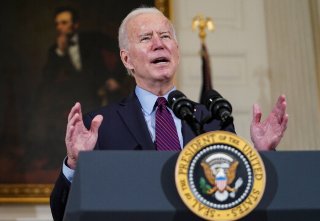The Stimulus Check Nightmare No One Is Talking About
Some people are having their money taken by bill collectors.
President Joe Biden’s $1.9 trillion American Rescue Plan has already disbursed approximately one hundred sixty-three million coronavirus stimulus checks, valued at about $384 billion, to financially wounded Americans.
Despite the compassionate intentions of these stimulus funds, there are bound to be individuals who could easily go on with their daily lives without this newest cash infusion—or in short, they aren’t as cash-strapped as believed to be.
In fact, a recent poll conducted by the Federal Reserve Bank of New York is suggesting that U.S. consumers are putting away 42 cents of every dollar received from the third stimulus checks.
Furthermore, less than 25 percent of the cash is being spent and the remainder is being used to settle outstanding debts.
In contrast, keep in mind that for the first two rounds of the stimulus checks, American households spent a greater amount of the money on daily living expenses, the poll showed.
Take note, however, that the researchers added that it is certainly possible some U.S. consumers are saving more of the stimulus cash because of natural limits on the activities that they can engage in during the ongoing pandemic. These consumers could eventually ramp up their overall spending as the economy slowly reopens.
For those who are feeling a bit guilty about receiving the latest stimulus check, know that there is nothing stopping an individual from writing “void” in the endorsement section on the back of the check and then mailing it to an appropriate Internal Revenue Service location. If one decides on this plan, just make sure to write a brief explanation stating the reason for returning the check.
However, if the payment was already direct deposited into a bank account, then one can send off a personal check or money order to a local IRS location. Just make it payable to “U.S. Treasury” and write “Third EIP” and personal taxpayer identification number—social security number or individual taxpayer identification number—on the check. Once again, a brief note will be necessary.
Nightmare: Can a Bill Collector Get My Money?
There will, though, be some instances in which the stimulus cash recipients won’t have a say on the matter. And one of the main reasons is that these individuals have unpaid debts that are considered long overdue.
According to the details of Biden’s legislation, understand that stimulus check money cannot be garnished for unpaid federal debts or back taxes, but the $1,400 checks can indeed be garnished for unpaid private debts, which can include medical bills and credit card debts.
If there is a court order that calls for money to be removed from an individual’s bank account, be aware that banks usually have to comply with those demands.
Ethen Kim Lieser is a Minneapolis-based Science and Tech Editor who has held posts at Google, The Korea Herald, Lincoln Journal Star, AsianWeek, and Arirang TV. Follow or contact him on LinkedIn.

